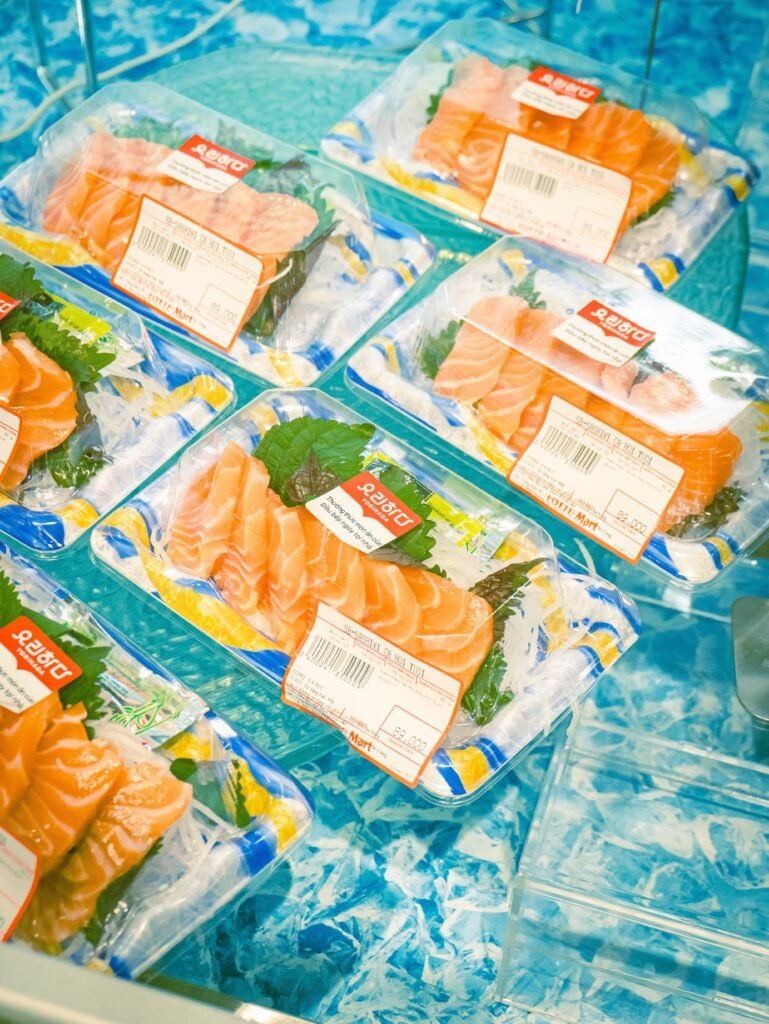When it comes to consuming fruit, you may find yourself pondering whether it is more beneficial to devour it with your teeth or quench your thirst with a refreshing fruit juice. With both options offering their own distinct advantages, the decision can be perplexing. While eating fruit allows you to savor its natural flavor and benefit from its fiber content, drinking fruit juice provides a convenient and efficient way to intake essential vitamins and minerals. In this article, we will explore the pros and cons of each method, shedding light on the eternal debate of whether it is better to eat or drink fruit. So, grab a seat and get ready to discover the answer that suits your preferences and dietary needs.

Nutritional Differences
Overview of nutrients in fruits
Fruits are packed with essential vitamins and minerals that are vital for overall health and well-being. They are a rich source of dietary fiber, antioxidants, potassium, and other beneficial nutrients. Each fruit has its unique nutrient profile, but common nutrients found in fruits include vitamin C, vitamin A, folate, and potassium. These nutrients contribute to a healthy immune system, promote good vision, support brain function, and help maintain healthy blood pressure levels.
Differences in nutrient content between eating and drinking fruit
While both eating and drinking fruit can provide essential nutrients, there are some differences in the nutrient content. When you eat whole fruits, you consume the fruit’s natural fiber, which aids in digestion and provides a feeling of fullness. On the other hand, fruit juice often undergoes processing, which can reduce the fiber content and alter the nutrient composition. Drinking fruit juice may provide a concentrated source of vitamins and minerals, but it may lack the beneficial fiber found in whole fruits.
Effect of processing on nutrient loss
Processing fruits into juice can result in some nutrient loss. During the juicing process, the skin, pulp, and seeds, which contain valuable nutrients, can be separated from the juice. Additionally, exposure to heat and air during processing can degrade certain heat-sensitive vitamins like vitamin C. However, it’s important to note that even though there may be some nutrient loss, fruit juice can still be a valuable source of certain vitamins and minerals.
Role of fiber in fruits and its availability in different forms
Fiber is an essential component of a healthy diet, and fruits are a great source of dietary fiber. Fiber plays a crucial role in maintaining digestive health, regulating blood sugar levels, and promoting satiety. When you eat whole fruits, you consume the fruit’s natural fiber, which is beneficial for digestion and helps you feel full. However, when fruits are juiced, much of the fiber is removed, leaving primarily the juice’s liquid content. It’s worth noting that some commercial fruit juices may have added fiber, but it’s not as beneficial as the fiber naturally found in whole fruits.
Digestive Process
Chewing and digestion of fruit when eaten
When you eat fruits, the process of digestion begins in your mouth. Chewing breaks down the fruit into smaller pieces, allowing digestive enzymes in your saliva to start breaking down carbohydrates. The broken-down food then travels to the stomach, where further digestion occurs with the help of stomach acid and enzymes. From there, the nutrients are absorbed by the small intestine and transported to the rest of your body.
Digestive process of fruit when juiced
When fruits are juiced, the digestion process is somewhat altered. Since the fiber is removed during juicing, the liquid passes through the digestive system more rapidly. This can result in a quicker release of natural sugars in the fruit juice, potentially leading to a more rapid blood sugar spike compared to consuming the whole fruit. However, the exact impact of juiced fruit on digestion can vary depending on the individual and their overall diet.
Effect of chewing on satiety and digestion
Chewing plays a significant role in promoting satiety and aiding digestion. When you eat whole fruits, the act of chewing stimulates saliva production, which contains enzymes that help break down carbohydrates. This saliva also signals to your brain that you are eating, leading to a feeling of fullness. In contrast, drinking fruit juice bypasses this chewing process, potentially leading to a less satisfying and less satiating experience.
Impact of juice extraction on fiber content and digestion
The process of extracting juice from fruits separates much of the fiber from the liquid. As a result, the fiber content in fruit juice is significantly reduced compared to whole fruits. Fiber is crucial for optimal digestion as it adds bulk to the stool and promotes regular bowel movements. Therefore, consuming whole fruits provides a more favorable environment for healthy digestion compared to drinking fruit juice.

Blood Sugar Control
Glycemic index of whole fruit vs. fruit juice
The glycemic index (GI) measures how quickly carbohydrates in food raise blood sugar levels. Generally, whole fruits have a lower GI compared to fruit juice. The presence of fiber in whole fruits slows down the rate at which sugar is absorbed, resulting in a slower and steadier increase in blood glucose levels. However, when fruits are juiced, much of the fiber is removed, leading to a more rapid release of natural sugars and potentially causing a more significant spike in blood sugar levels.
Effect of fiber on blood sugar levels
Fiber plays a crucial role in regulating blood sugar levels. It helps slow down the absorption of sugar into the bloodstream, preventing sharp spikes and crashes in blood glucose levels. When you eat whole fruits, the natural fiber content acts as a buffer, regulating the release of sugar from the fruit into your bloodstream. Without this fiber, as is the case with fruit juice, the sugar is absorbed more quickly, potentially leading to more significant fluctuations in blood sugar levels.
Role of fiber in slowing down sugar absorption
The fiber found in whole fruits forms a gel-like substance in the intestines, which slows down the digestion and absorption of carbohydrates. This slow release of sugars into the bloodstream helps maintain stable blood sugar levels and prevents rapid spikes. By removing the fiber during the juicing process, fruit juice can lead to a more rapid release of sugar, potentially causing a sharper increase in blood sugar levels.
Comparison of blood sugar response after consuming fruit in different forms
Studies have shown that consuming whole fruits may have a more favorable impact on blood sugar levels compared to consuming fruit juice. The fiber content in whole fruits helps regulate the absorption of sugar, resulting in a slower rise in blood glucose levels. Conversely, drinking fruit juice can lead to a more rapid increase in blood sugar due to the absence of fiber. If you are concerned about blood sugar control, it is generally recommended to choose whole fruits over fruit juice or consume juice in moderation.
Hydration and Quenching Thirst
Water content in whole fruit
Whole fruits have a high water content, which contributes to hydration when consumed. Fruits like watermelon, oranges, and strawberries consist mostly of water, helping to quench thirst and keep the body adequately hydrated. Additionally, the water content in fruits can contribute to overall fluid balance in the body, supporting various physiological functions.
Water content in fruit juice
Fruit juice also contains water, but it is important to note that the concentration of water is higher in whole fruits than in fruit juice. While the liquid in fruit juice can contribute to hydration to some extent, it is recommended to consume water alongside fruit juice to ensure proper hydration.
Effectiveness of hydrating with fruit vs. fruit juice
When it comes to hydration, consuming whole fruits is generally more effective than relying solely on fruit juice. The high water content in whole fruits, combined with their natural fiber and other nutrients, supports optimal hydration. Additionally, chewing fruits stimulates saliva production, which aids in the overall hydration process. While fruit juice can contribute to hydration, it should be complemented with adequate water intake for optimal hydration levels.
Quenching thirst and electrolyte balance
In addition to their high water content, certain fruits also contain electrolytes that can help replenish minerals lost through sweating or other fluid losses. Fruits like bananas and oranges are a good source of potassium, an essential electrolyte that plays a vital role in maintaining fluid balance in the body. Reaching for a whole fruit when you’re feeling thirsty can not only help quench your thirst but also provide valuable electrolytes to support proper hydration and overall well-being.

Satiety and Portion Control
Fiber content and satiety
Fiber is known to contribute to feelings of fullness and satisfaction after a meal. Whole fruits, with their natural fiber intact, have a higher satiety factor compared to fruit juice. The chewing process required when eating whole fruits, along with the presence of fiber, sends signals to your brain to indicate that you’ve consumed a substantial amount of food, promoting a greater feeling of satiety.
Feeling of fullness after eating whole fruit
When you eat whole fruits, the combination of fiber, water content, and chewing process leads to a greater feeling of fullness compared to drinking fruit juice. The presence of fiber and the act of chewing can help slow down the rate of digestion, allowing your brain more time to receive signals of fullness. This feeling of fullness may contribute to portion control and reduce the likelihood of overeating.
Impact of juicing on volume and calorie density
Fruit juice typically has a higher calorie density compared to whole fruits due to the removal of fiber and other components during the juicing process. This higher calorie density can make it easier to consume more calories in less volume when drinking fruit juice compared to eating whole fruits. This can potentially lead to consuming excess calories without feeling as satisfied or full.
Comparison of satiety levels between eating and drinking fruit
Numerous studies have shown that eating whole fruits promotes greater satiety compared to consuming fruit juice. The act of chewing, the presence of fiber, and the greater volume of whole fruits contribute to a more satisfying eating experience. On the other hand, drinking fruit juice can result in a less satiating experience due to the absence of fiber and the potential for higher calorie consumption without the same level of fullness.
Dental Health
Chewing action and its benefits for oral health
Chewing whole fruits provides mechanical stimulation for the jaw and helps promote good oral health. The act of chewing stimulates saliva production, which contains enzymes that aid in the breakdown of food and the prevention of tooth decay. Additionally, the chewing action can help remove food particles from the teeth and gums, reducing the risk of plaque buildup and cavities.
Effects of sugars and acids on tooth enamel
Fruits naturally contain sugars and acids, which can have some impact on tooth enamel. However, when consumed in whole fruit form, the natural sugars and acids are generally less concentrated and accompanied by beneficial fiber. Chewing whole fruits stimulates saliva production, which helps neutralize acids and rinse away sugars, minimizing their potential negative effects on tooth enamel.
Drinking fruit juice and tooth decay
Fruit juice, particularly when consumed frequently and in large quantities, can have a negative impact on dental health. Fruit juices often contain added sugars, which can promote tooth decay if left in contact with the teeth for extended periods. Additionally, the lack of fiber in fruit juice allows the sugars to come into direct contact with the teeth, increasing the risk of cavities. It is important to practice good oral hygiene and limit the consumption of sweetened fruit juices to maintain optimal dental health.
Role of fiber in promoting healthy teeth and gums
Fiber plays a beneficial role in promoting healthy teeth and gums when consumed through whole fruits. The natural fiber in fruits aids in tooth brushing by mechanically cleaning the teeth and gums when chewed. Additionally, the act of chewing stimulates saliva production, which helps wash away food particles and acids, maintaining a healthier oral environment in the mouth.

Weight Management
Calorie content of whole fruit vs. fruit juice
Whole fruits generally have a lower calorie content compared to fruit juice. The removal of fiber during the juicing process concentrates the natural sugars and leads to a higher calorie density in fruit juice. On the other hand, whole fruits provide a satisfying volume of food while delivering fewer calories. As a result, incorporating whole fruits into your diet can be beneficial for weight management.
Effect of fiber and water content on calorie density
The fiber and water content in whole fruits contribute to their lower calorie density. The presence of fiber increases the volume of the fruit, making it more filling without adding excessive calories. Additionally, the high water content in whole fruits can help promote a sense of fullness while providing hydration. Choosing whole fruits over fruit juice can therefore help manage calorie intake while still enjoying a satisfying and nutritious snack.
Role of fiber in regulating appetite
Fiber plays a crucial role in regulating appetite by promoting feelings of fullness and satiety. When you consume fiber-rich foods like whole fruits, the fiber absorbs water, expanding in your stomach and triggering signals of fullness. This can help you feel satisfied and prevent overeating. On the other hand, fruit juice lacks fiber, which may lead to less control over appetite and potentially result in consuming more calories.
Impact of fruit form on weight management
Opting for whole fruits rather than consuming fruit juice can be beneficial for weight management. The fiber, water content, and lower calorie density of whole fruits contribute to a more satisfying eating experience, potentially reducing the desire to consume excess calories. Including a variety of whole fruits as part of a balanced diet can help support weight management goals while providing essential nutrients and promoting overall health.
Antioxidant Intake
Presence of antioxidants in fruits
Fruits are a rich source of antioxidants, which are compounds that help protect the body against cellular damage caused by free radicals. Free radicals are unstable molecules that can lead to inflammation and oxidative stress. The diverse range of colorful fruits offers a variety of antioxidants, including vitamin C, vitamin E, beta-carotene, and flavonoids. Including a variety of fruits in your diet ensures a broad spectrum of antioxidants to help support overall health.
Effect of juicing on antioxidant retention
The juicing process can affect the retention of antioxidants in fruit juice. While vitamins and minerals may remain relatively stable, some antioxidants can be sensitive to heat and oxygen exposure during processing. As a result, the concentration of certain antioxidants in fruit juice may be less than what is found in whole fruits. However, it is still important to note that fruit juice can provide a viable source of antioxidants, albeit potentially in lower quantities.
Absorption of antioxidants in the body
The absorption of antioxidants in the body depends on various factors, including digestion, metabolism, and individual differences. While consuming whole fruits provides a favorable environment for the absorption of antioxidants due to the presence of fiber and other beneficial compounds, fruit juice still allows absorption of certain antioxidants. It is important to maintain a varied diet that includes a combination of whole fruits and other antioxidant-rich foods to maximize antioxidant intake and potential health benefits.
Comparative antioxidant levels in eating and drinking fruit
Research has shown that consuming whole fruits generally provides a greater antioxidant intake compared to drinking fruit juice. The fiber, water content, and other beneficial compounds present in whole fruits contribute to a more diverse and higher concentration of antioxidants. However, this does not mean that fruit juice lacks antioxidant benefits altogether. Incorporating a variety of fruits and their juices can still contribute to the overall antioxidant intake and support a healthy lifestyle.

Convenience and Practicality
Preparation time for eating fruit
Eating whole fruits requires minimal preparation time. Most fruits can be enjoyed as they are, simply by washing and, if necessary, peeling them. This convenience makes whole fruits a quick and easy snack option for people with busy lifestyles. Whether you’re on-the-go or need a nutritious addition to your meal, whole fruits can easily be incorporated without much hassle.
Time and effort required for juicing
Juicing fruits, on the other hand, can require more time and effort. To extract juice, fruits often need to be peeled, seeded, and processed through a juicer or blender. This can be time-consuming, especially if you’re juicing a variety of fruits or larger quantities. Additionally, the clean-up process and maintenance of the juicing equipment can add further complexity to the juicing process.
Availability and portability of fruit vs. juice
One of the advantages of whole fruits is their availability and portability. Fruits can be found in grocery stores, farmers’ markets, and even roadside stands, making them easily accessible for most individuals. Furthermore, many fruits come in their own natural packaging, such as bananas and oranges, which makes them highly portable and convenient for on-the-go consumption. Alternatively, fruit juice often comes in pre-packaged bottles or cartons, which may not be as readily available or convenient for carrying around.
Considerations for busy lifestyles
In today’s fast-paced world, convenience plays a significant role in dietary choices. While fruit juice can provide a quick and easy way to consume certain nutrients, whole fruits shouldn’t be overlooked for their convenience factor. With minimal preparation time and their natural packaging, whole fruits can be an excellent option for those leading busy lifestyles, providing essential nutrients without compromising on convenience.
Other Factors to Consider
Processing methods and additives in store-bought fruit juice
It is important to consider the processing methods and additives used in store-bought fruit juice. Some commercial fruit juices may undergo additional processing steps, such as pasteurization or clarification, which can affect the nutritional content and overall quality. Additionally, certain brands may add sugars, preservatives, or artificial flavors to enhance the taste or shelf life of the juice. When choosing fruit juice, it is recommended to read the labels and select those with minimal additives and processing.
Variety and diversity of fruit intake
It is beneficial to consume a variety of fruits to ensure a wide range of nutrients and antioxidants in your diet. Different fruits offer various vitamins, minerals, and phytonutrients, and incorporating a diverse selection can help maximize your overall nutrient intake. By including whole fruits and potentially some fruit juice in your diet, you can derive the benefits of different fruits and enjoy the variety they provide.
Personal preferences and taste
Personal preferences and taste preferences play a significant role in deciding whether to eat or drink fruit. Some individuals may prefer the texture and chewing process of whole fruits, while others may find the convenience and taste of fruit juice more appealing. It is important to choose the option that aligns with your preferences and still allows you to consume an adequate amount of essential nutrients from fruits.
Overall dietary balance and moderation
When considering the choice between eating or drinking fruit, it is essential to maintain overall dietary balance. Fruits, whether eaten whole or in the form of juice, should be part of a well-rounded diet that includes a variety of other nutritious foods. Balancing fruit intake with other food groups and incorporating dietary components like protein, whole grains, and healthy fats ensures that you meet your nutritional needs. Moderation is also key, as excessive consumption of fruit juice or overindulgence in whole fruits can lead to an imbalance in nutrient intake or calorie excess.
In conclusion, the decision to eat or drink fruit depends on personal preferences, convenience, and nutritional goals. Both eating whole fruits and consuming fruit juice can provide essential nutrients, but they do have differences in terms of fiber content, impact on blood sugar levels, satiety, and overall convenience. It is recommended to include a variety of fruits in your diet, both in the form of whole fruits and potentially some fruit juice, while considering overall dietary balance and moderation. Ultimately, choosing a combination of fruit consumption methods can help support a healthy lifestyle and ensure adequate nutrient intake. So, whether you prefer biting into a juicy apple or sipping on a refreshing glass of orange juice, there is room for both in a well-balanced diet.

